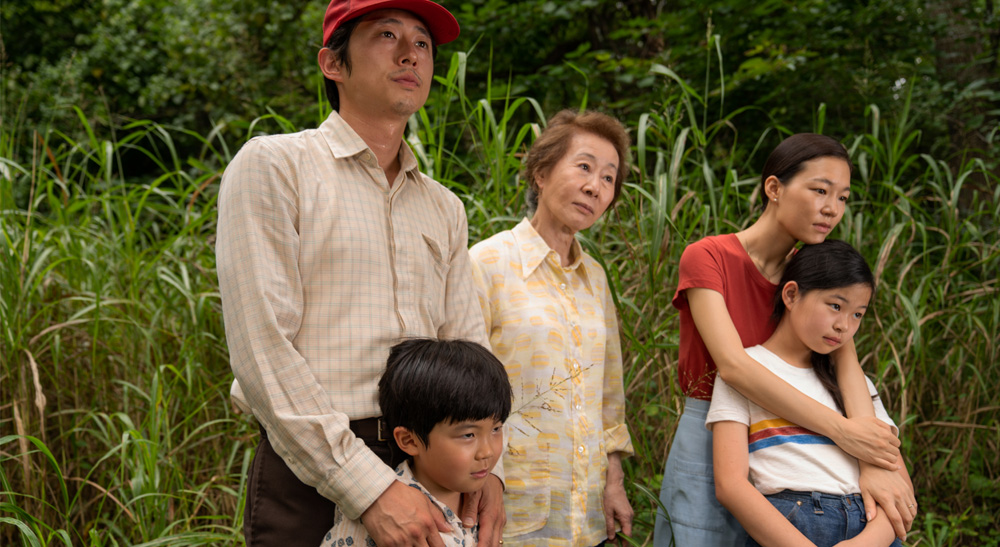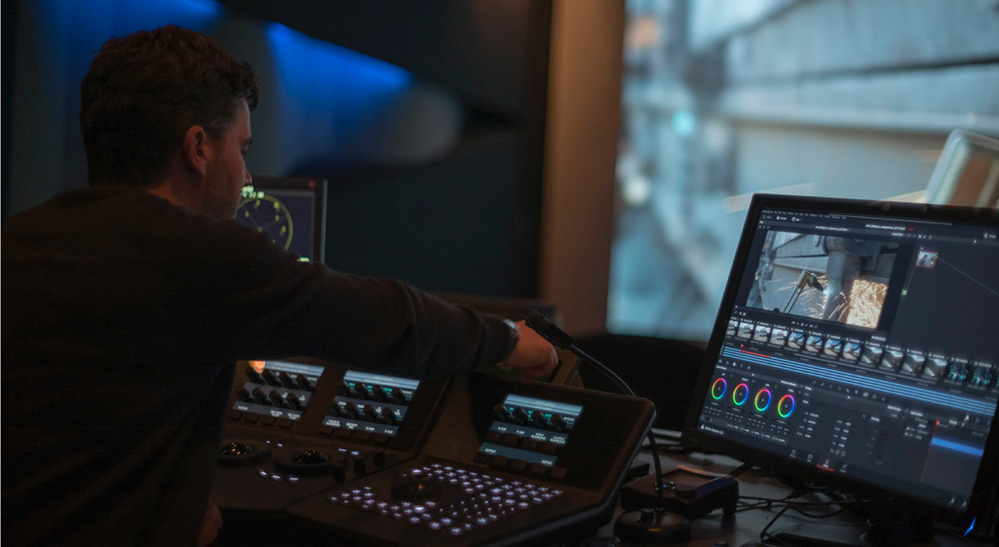Photo by Josh Ethan Johnson, Courtesy of A24
Fremont, CA – April 22, 2021 – Blackmagic Design announced today that the Academy Award-nominated film “Minari” was colored in DaVinci Resolve Studio by FotoKem Senior Colorist David Cole.
Directed by Lee Isaac Chung, and lensed by Lachlan Milne (ACS, NCZS), “Minari” follows a Korean American family that moves to an Arkansas farm in search of its own American dream. Amidst the challenges of this new life in the strange and rugged Ozarks, they discover the undeniable resilience of family and what really makes a home.
With Cole already working with Milne on “Love and Monsters,” it was a logical jump to incorporate “Minari” into their already established workflow. “It was extremely helpful to Lachlan to do the final color back to back at the same facility as he was shooting other projects while we worked on both ‘Love and Monsters’ and ‘Minari.’ FotoKem established a remote pipeline for him that worked for collaborating,” said Cole.
 Photo by Melissa Lukenbaugh, Courtesy of A24
Photo by Melissa Lukenbaugh, Courtesy of A24
Working closely together, Cole and Milne developed looks that could be put to work for production, using DaVinci Resolve. “After extensively discussing the vision for the film, I used Resolve to tweak Lachlan’s dailies LUT and built it into something more robust for the entire film. Resolve is quite useful for LUT development, allowing users to export CUBE files. I could hand these off to Lachlan so he had the ability to see how it would handle in various situations.”
A drama about a family’s struggles, the story and characters of “Minari” revolve around the landscape, which reflects their hopes for the future. Cole wanted to respect that approach, which was mirrored by the cinematographer and director. “To communicate that sense, Lachlan and Isaac wanted a realistic yet idealized look,” said Cole. “They also wanted the movie to be grounded in the 1980s but with a subtle touch. I used DaVinci Resolve to further extend the LUT and get that 1980’s Midwest feel without screaming ‘this is a period film.’ It’s a very popular genre at the moment, because of Stranger Things and Wonder Woman, but we didn’t want ‘Minari’ to wander into that retro color space. The Resolve tools allowed me to be artistic with that visual edict.”
 Photo by Josh Ethan Johnson, Courtesy of A24
Photo by Josh Ethan Johnson, Courtesy of A24
While the film may have the feeling of a very natural, organic style, that wasn’t solely in-camera. To achieve the subtle yet effective look, Cole relied on Resolve’s many tools, including Power Windows and Keys. “There was extensive key work in ‘Minari’ to make the fields look lush as well as to add a richness to the sky and clouds, which supports the lead character’s idealistic view of the world, that his dream was possible albeit amidst the struggles.”
“Even though ‘Minari’ is the story of the parents (Jacob, played by Steven Yeun and Monica, (played by Yeri Han), it’s told through the eyes of the boy (David, played by Alan S. Kim). For scenes inside the trailer where they lived, I relied on sculpting to make it feel more intimate and make their home inviting, especially when David is sharing his room with his grandma. Those scenes take place at night, but we still needed to see the characters and bring out their expressions, while maintaining a sense of the time of day. For ‘Minari’, the color grade was always about emphasizing the emotions of the characters at any particular time while telling the story.”

Cole used a wide range of Resolve tools to grade “Minari,” often to assist even simple scenes to bring out the cinematographer’s vision. “There’s a specific shot when Jacob and David are out in the field looking for water, and they dig a hole. Lachlan composed a beautiful overhead shot of them. Then in the grade, I used shapes to create a gobo effect on the grass and dirt pile to bring in more depth because there weren’t a lot of shadows from that angle, as it was filmed in mid-day light. Shapes in Resolve helped me to add more contrast to the scene to keep it interesting.”
“In another scene, David pulls a drawer out and cuts his foot. This was also composed as an overhead shot and there was a visual effect of blood on his foot and the ground as an enhancement. In the grade, Isaac, (editor) Harry Yoon and I wanted to adjust how much blood was under his foot. Using the layering and rotoscoping features of Resolve, I was able to choose the elements we wanted, and tweak it a little, animating how the blood creeps out throughout the course of the shot. The visual effect shot was full blood, and the clean plate had minimal blood, so between those two extremes we were able to reveal just the right amount.”
About Blackmagic Design
Blackmagic Design creates the world’s highest quality video editing products, digital film cameras, color correctors, video converters, video monitoring, routers, live production switchers, disk recorders, waveform monitors and real-time film scanners for the feature film, post-production and television broadcast industries. Blackmagic Design’s DeckLink capture cards launched a revolution in quality and affordability in post-production, while the company’s Emmy™ award-winning DaVinci color correction products have dominated the television and film industry since 1984. Blackmagic Design continues groundbreaking innovations including 6G-SDI and 12G-SDI products and stereoscopic 3D and Ultra HD workflows. Founded by world-leading post-production editors and engineers, Blackmagic Design has offices in the USA, UK, Japan, Singapore and Australia. For more information, please go to www.blackmagicdesign.com.






